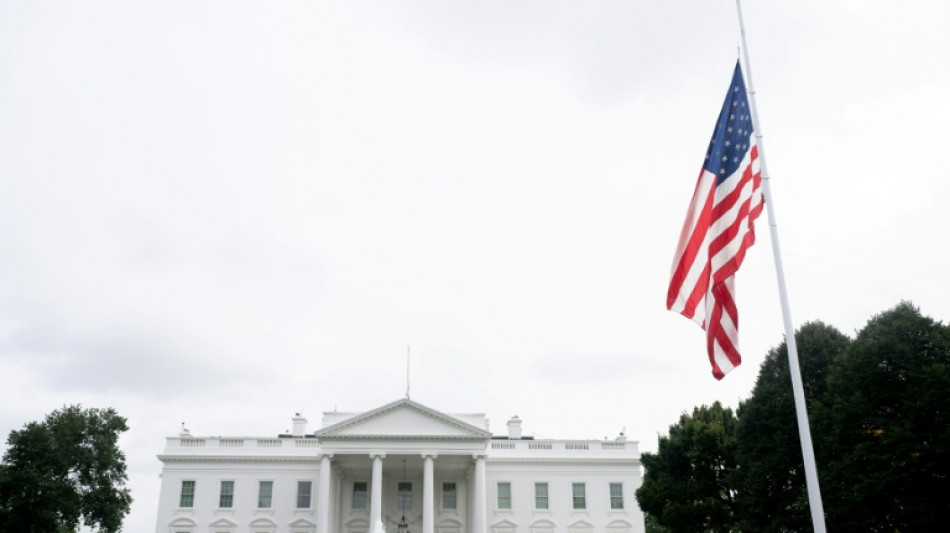
-
 Australian state bans testing of illicit drugs
Australian state bans testing of illicit drugs
-
Philippines 'ghost' flood projects leave residents stranded

-
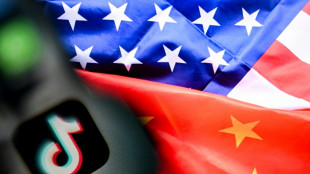 Asian markets fluctuate as focus turns to Trump-Xi, BoJ
Asian markets fluctuate as focus turns to Trump-Xi, BoJ
-
North Korea's Kim oversees drone test, orders AI development

-
 Kenya eye double gold on penultimate day of world championships
Kenya eye double gold on penultimate day of world championships
-
Canada, Mexico leaders agree to seek 'fairer' trade deal with US
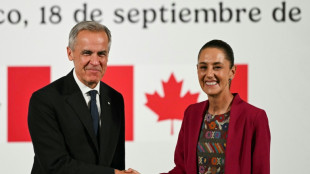
-
 How did an Indian zoo get the world's most endangered great ape?
How did an Indian zoo get the world's most endangered great ape?
-
Amid emotional retirement reveal, Kershaw focused on beating Giants

-
 Dodgers pitching icon Kershaw to retire after 18th MLB season
Dodgers pitching icon Kershaw to retire after 18th MLB season
-
Netflix seeks 'Money Heist' successor in Spanish hub
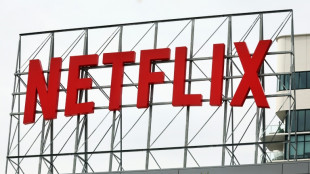
-
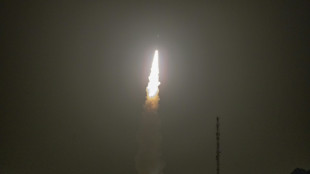 Taiwan running out of time for satellite communications, space chief tells AFP
Taiwan running out of time for satellite communications, space chief tells AFP
-
Gaza, Palestinian future to dominate UN gathering
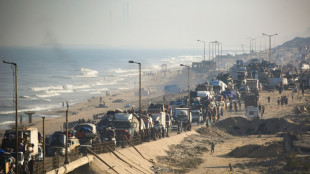
-
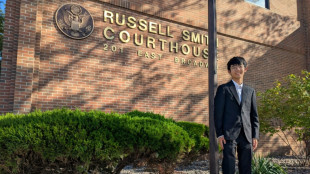 Young plaintiffs stand tall after taking on Trump climate agenda in court
Young plaintiffs stand tall after taking on Trump climate agenda in court
-
Kirk killing sparks fierce US free speech debate
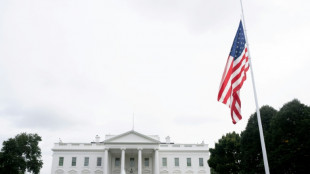
-
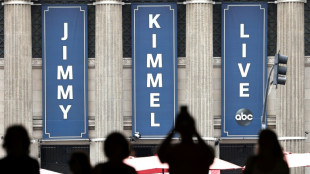 Eying bottom line, US media giants bow to Trump
Eying bottom line, US media giants bow to Trump
-
Indie studio bets on new game after buying freedom from Sega
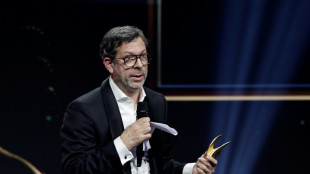
-
 Marseille hoping to catch PSG at the right time in Ligue 1
Marseille hoping to catch PSG at the right time in Ligue 1
-
Japan inflation slows in August, rice price surges ease

-
 Court seizes assets of Maradona's lawyer, sisters in fraud case
Court seizes assets of Maradona's lawyer, sisters in fraud case
-
RFK Jr panelists make initial changes to childhood vaccine schedule
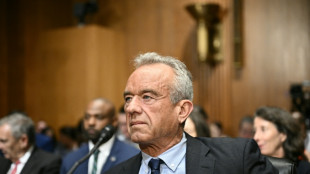
-
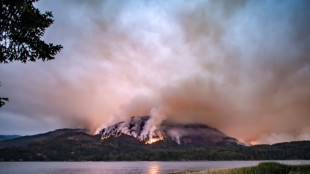 Progress stalled on Canada's pollution reduction goal
Progress stalled on Canada's pollution reduction goal
-
UN Security Council votes on reimposing Iran nuclear sanctions
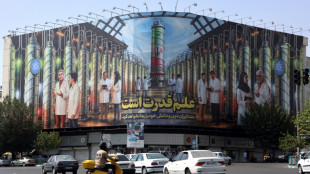
-
 Depleted France eager to 'throw sand in England's machine' in World Cup semi-final
Depleted France eager to 'throw sand in England's machine' in World Cup semi-final
-
Barcelona beat Newcastle, Man City see off Napoli in Champions League

-
 Texans' Ward won't face domestic violence charges
Texans' Ward won't face domestic violence charges
-
Alcaraz headlines Team Europe in Laver Cup title defense

-
 Rashford bags first Barca goals to seal win at Newcastle
Rashford bags first Barca goals to seal win at Newcastle
-
Haaland hits 50 Champions League goals in Man City cruise over 10-man Napoli

-
 Dodgers pitching icon Kershaw to retire - club
Dodgers pitching icon Kershaw to retire - club
-
Eagles seek answers against Rams in battle of NFL unbeatens
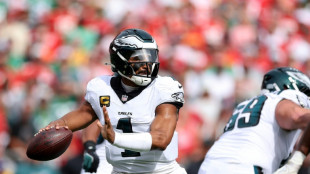
-
 Afghanistan crash out of Asia Cup after six-wicket loss to Sri Lanka
Afghanistan crash out of Asia Cup after six-wicket loss to Sri Lanka
-
US regulator sues Ticketmaster over 'illegal' ticket schemes
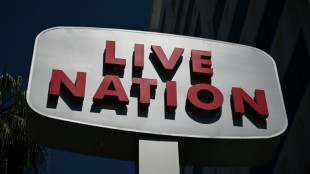
-
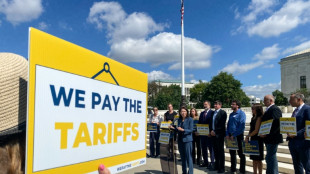 US small businesses slam Trump tariffs as legal fight proceeds
US small businesses slam Trump tariffs as legal fight proceeds
-
All smiles as Melania and Kate meet kids in first public event

-
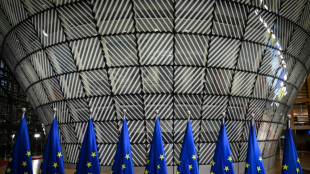 EU states agree 'face-saving' broad UN emissions-cutting target
EU states agree 'face-saving' broad UN emissions-cutting target
-
Madonna to release new album next year
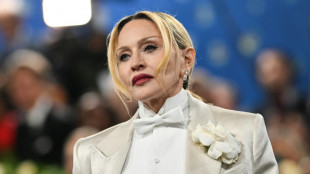
-
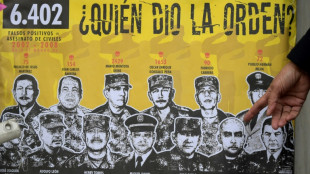 Colombian court issues first sentences for ex-soldiers over civilian killings
Colombian court issues first sentences for ex-soldiers over civilian killings
-
Chip-maker Nvidia takes stake in rival Intel
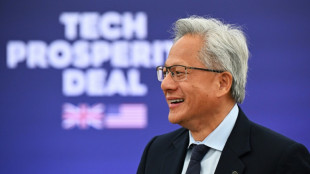
-
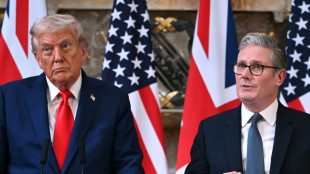 Putin has let me down, says Trump at end of UK state visit
Putin has let me down, says Trump at end of UK state visit
-
Melania's hat, Epstein's ghost: takeaways from Trump's UK visit
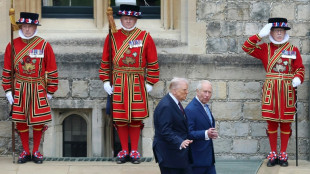
-
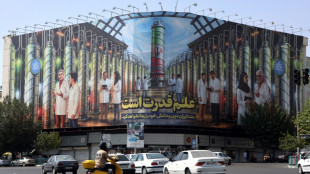 UN Security Council to vote on Iran nuclear sanctions Friday
UN Security Council to vote on Iran nuclear sanctions Friday
-
AI-backed robot painting aims to boost artist income

-
 Former Barca presidents deny corruption at ref scandal court appearance
Former Barca presidents deny corruption at ref scandal court appearance
-
Canada, Mexico leaders meet amid US tariff war
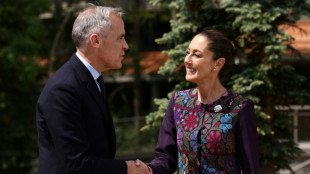
-
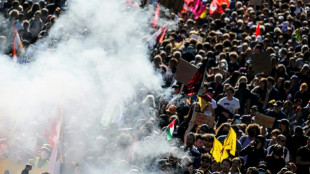 Mass rallies, disruptions in France on day of anger against Macron
Mass rallies, disruptions in France on day of anger against Macron
-
Piastri says team orders clarified at McLaren

-
 'Box office' McLaughlin-Levrone -- rarely seen but worth the wait
'Box office' McLaughlin-Levrone -- rarely seen but worth the wait
-
Stocks rise on Nvidia-Intel deal, Fed rate cut

-
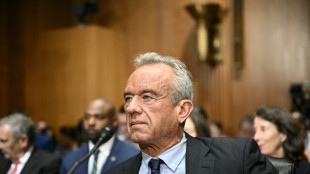 US medical panel insists it's 'pro-vaccine'
US medical panel insists it's 'pro-vaccine'
-
Trump says Putin has 'let me down' as UK state visit ends
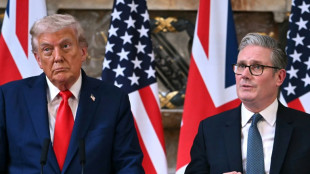

Kirk killing sparks fierce US free speech debate
For Americans, the words are practically sacred: the First Amendment to the US Constitution guarantees freedom of speech.
But that right is now the subject of bitter debate, following the assassination of right-wing activist Charlie Kirk.
On Thursday, several high-ranking Democrats accused President Donald Trump of waging war on free speech, after he celebrated ABC's suspension of talk show host Jimmy Kimmel, who accused the political right of using Kirk's death to score points.
The American Civil Liberties Union, a rights advocacy group, accused the Trump administration of operating outside constitutional safeguards to target its opponents, likening it to the Red Scare of the late 1940 and 1950s under senator Joseph McCarthy.
"This is beyond McCarthyism. Trump officials are repeatedly abusing their power to stop ideas they don't like, deciding who can speak, write, and even joke," said Christopher Anders, director of the ACLU's democracy and technology division.
So what does the First Amendment say? And why is it up for debate?
- 'How we identify ourselves' -
Ratified in 1791, the Bill of Rights comprises the first 10 amendments to the US Constitution, protecting the fundamental rights of Americans.
"Congress shall make no law respecting an establishment of religion, or prohibiting the free exercise thereof; or abridging the freedom of speech, or of the press; or the right of the people peaceably to assemble," the First Amendment says.
For David Super, a professor at Georgetown University's law school, the amendment is "really how we identify ourselves as a nation."
Beyond the varied ethnicities and background of the nation's 340 million people, "we are thought to be drawn together by a belief in open discussion and a belief that the government can't shut any of us up," Super told AFP.
The First Amendment even protects speech that is "morally repulsive," explained Eugene Volokh, a professor of law at the University of California, Los Angeles.
Volokh however emphasized that the history of the United States has been marked by attempts to stifle dissident voices.
- 'Malicious writings' -
In 1798, America's second president John Adams signed into law the Sedition Act, which forbade "any false, scandalous and malicious writing or writings against the government of the United States."
Then during World War I, the expression of pacifist ideology was banned.
From the 1920s to the 1950s, anyone expressing support for communist ideals risked serious repercussions. And in the 1960s, officials in several southern US states battled to silence the civil rights movement.
One of the key pillars of Trump's political movement has been to eviscerate "cancel culture" -- the process of criticizing someone for voicing an opinion seen as unacceptable, to the point of that person being ostracized or fired.
Trump has often called "cancel culture" a scourge of leftist progressives, claiming that it has been used to silence conservative pundits and politicians.
But Democrats have turned the tables on Trump, accusing him of doing the same to US media organizations, major universities and, now, Kimmel -- a frequent target of Trump's ire.
"After years of complaining about cancel culture, the current administration has taken it to a new and dangerous level," Democratic former president Barack Obama wrote Thursday on X.
- Conservative push-back -
US Attorney General Pam Bondi sparked controversy among conservatives by saying earlier this week that the Justice Department would pursue anyone guilty of "hate speech" linked to the slain influencer.
Republican Senator Ted Cruz quickly countered that the Constitution "absolutely protects hate speech." Bondi then said she meant to refer to "threats of violence that individuals incite against others."
Conservative commentator Tucker Carlson called for "civil disobedience" should Kirk's murder result in an uptick in laws limiting free speech.
And some voices on the far right have criticized a decree signed by Trump in August that makes burning the American flag punishable by up to a year in prison.
The US Supreme Court ruled in 1989 that burning the Stars and Stripes indeed amounted to free speech, and was protected by the First Amendment.
"I would never in a million years harm the American flag," conservative radio host Jesse Kelly wrote on X.
"But a president telling me I can't has me as close as I’ll ever be to lighting one on fire. I am a free American citizen. And if I ever feel like torching one, I will."
R.Kloeti--VB
